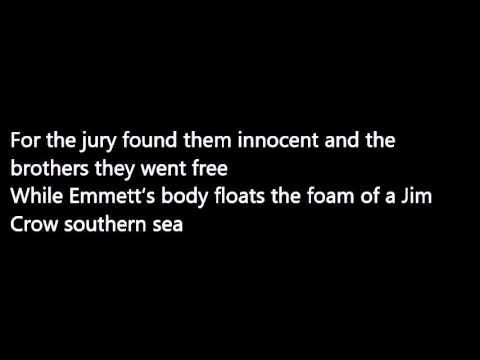Thank you for joining me for this Sunday Special commentary.
Comments and questions are welcome. Please be respectful of others’ opinions if they should differ from yours.
For Japanese students, vocabulary words in bold are provided in Japanese below.
(339 words)
The woman who claimed that 14-year-old Emmett Till had whistled at her died this week. Emmett’s death in August, 1955, shocked the nation and moved many people to take action on the issue of lynching.
In short, Emmett Till grew up in Chicago. As a child, he had a stutter. To help him, his mother told him:
“‘If you find yourself stuck on a word,’ I said, ‘take in a breath, whistle, and then go ahead and speak.’ He tried it, and it seemed that when he whistled, it was almost a hypnotic cue that would calm him, steady his breathing, and allow him to finish saying what he had started to say” (Till-Mobley, p. 67).
Some of his cousins had invited him to come to Money, Mississippi, for the summer. The social rules for blacks and whites in Chicago were not the same as they were in Mississippi, but Emmett didn’t know that. His mother, Mamie Till-Mobley, wasn’t sure, but she allowed him to go.
He was with his cousins one day when they went into a store to buy some candy.
The white woman said that Emmett had whistled at her and approached her in a threatening way (which, many years later, she said was not true). Her husband and his brother went to the cousins’ house that night, took Emmett, drove him to a barn, beat and tortured him, and threw his body in the river.
According to Emmett’s mother, there were variations of the story of what happened that day. Emmett had bought bubble gum, and, outside the store, might have been telling his cousins about it, stuttering when trying to say the word. Perhaps he had whistled to calm himself, and the white woman had misunderstood (p. 122).
The two men were arrested, but the white jury said they were innocent. No one was ever held responsible for Emmett’s death.
Bob Dylan wrote a song about this story. Below the video, there is some vocabulary from the song that might help learners of English.
Sources:
Hassan, A. (2021, August 26). Emmett Till's enduring legacy. The New York Times. Retrieved April 28, 2023, from https://www.nytimes.com/article/who-was-emmett-till.html.
Till-Mobley, M., & Benson, C. (2003). Death of innocence: The story of the hate crime that changed America. Random House.
VOCABULARY
stutter 吃る
whistle 口笛を吹く
hypnotic cue 催眠術のきっかけ
threaten 脅かす
torture 拷問
rag 引っ張る
gulf 湾
cease やめる
jury 陪審
mockery あざけり
courthouse 裁判所
innocent 無罪
Jim Crow ジム・クロウはアメリカの人種差別法であり、黒人に対する不当な差別と分離を定めだった。
shackles 束縛






The confederate flag in the Capital on January 6th is just a reminder that this irrational hate is still alive and well.
Dear Louise,
Disremember? No wonder I didn't get it. Thank you you for clarification.
What do I think about his use of "disremember" instead of "cant't remember"? Maybe I'm saying the same thing, but when I read that part (”They said they had a reason, but I can't remember what"), I felt puzzled about "I can't remember what" because it's not that he has forgotten the reason, far from it, and he goes on to explain the reason in an unambiguous way (The reason that they killed him there, and I'm sure it ain't no lie, was ....). Having learnd the word "disrembem," it now seems to me that by using DISremember, Dylan was sending a message that he resists remembering/recalling/repeating the reason (as remembering/recalling it makes him sick) or "how could I possiblly forget the reason that was so stupid?!
Mitsuru